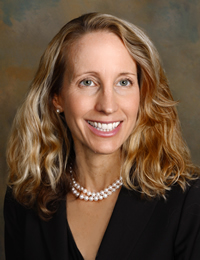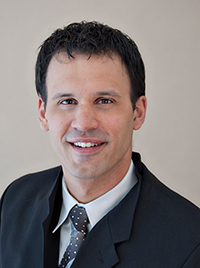At this year’s Annual Meeting, attendees can earn the ABIM Maintenance of Certification (MOC) points they need for compliance in a format that boosts interactivity and sparks critical thinking.

“These sessions are extremely valuable because the participants work through complex clinical cases and questions in real time in a live session,” said Maria Dall’Era, MD, Lupus Clinic and Rheumatology Clinical Research Center Director at the University of California, San Francisco, one of three CARE: MOC Session speakers for 2016. “Participants will use an audience response system to answer the clinical questions and receive immediate feedback on their answers.”
Participants can earn three ABIM MOC points and up to three AMA PRA Category 1 Credits™ per session once they complete an online assessment. They also can earn 9 ABIM MOC points and up to 9 AMA PRA Category 1 Credits™ for completing all three modules. This year’s sessions include:
MOC Session 1: Lupus: Sunday, Nov. 13. Speaker: Maria Dall’Era, MD
MOC Session 2: Nonarticular and Regional Musculoskeletal Disorders: Monday, Nov. 14. Speaker: Seetha Monrad, MD
MOC Session 3: Miscellaneous Rheumatic Disorders (Conditions that Don’t Fit in a Box): Tuesday, Nov. 15. Speaker: Jason Kolfenbach, MD

In each module, participants will answer nine challenging questions embedded in the speaker’s presentation using an audience response tool called Poll Everywhere, which they can access through their smartphone, laptop, or tablet. Each speaker is a subject matter expert who worked with equally knowledgeable writers to develop in-depth, case-based questions to incorporate into their talks. The question writers for 2016 were Sam Dalvi, MD, Eli Miloslavsky, MD, Rumey Ishizawar, MD, PhD, and William Ayoub, MD.
Questions developed for the meeting sessions will be included in the online CARE: MOC Sessions modules. Attendee surveys from past meetings provided feedback and guidance to improve interactivity and content so the MOC sessions are relevant and engaging. The development group, chaired by Juliet Aizer, MD, built this year’s program.
All the cases and questions were carefully developed to steer each participant through complex clinical situations, Dr. Dall’Era said, adding that MOC sessions are not just designed to let attendees fill their certification compliance requirements but to be thought-provoking and useful in daily clinical practice.
“This exercise will be helpful both for participants’ MOC requirements and in their daily clinical practices,” she said.
“While working through the clinical case, the speaker is able to point out important clues to help the participant arrive at the correct answer.”
Both common and atypical cases seen in rheumatology practice will be explored, with speakers highlighting the clinical pearls to take with you, said Dr. Kolfenbach, Rheumatology Fellowship Program Director at the University of Colorado Denver and one of this year’s speakers.
“One of the exciting things about being a rheumatologist is having the opportunity to be involved with the initial diagnosis and subsequent management of conditions that may have stumped other providers,” he said. “Rheumatologists have expertise in some relatively uncommon conditions.”
This year’s subject matter and enhanced interactivity will make it easier for participants to explore clinical education in a format they’ll truly enjoy, Dr. Kolfenbach said.
“The Annual Meeting can be exhausting, with so many excellent talks that span from the early morning to late at night across several days,” he said. “It can be information overload for attendees. I’m hoping the chance to go through questions and get the audience really thinking about these topics will represent a fun change of pace from their other activities.”
